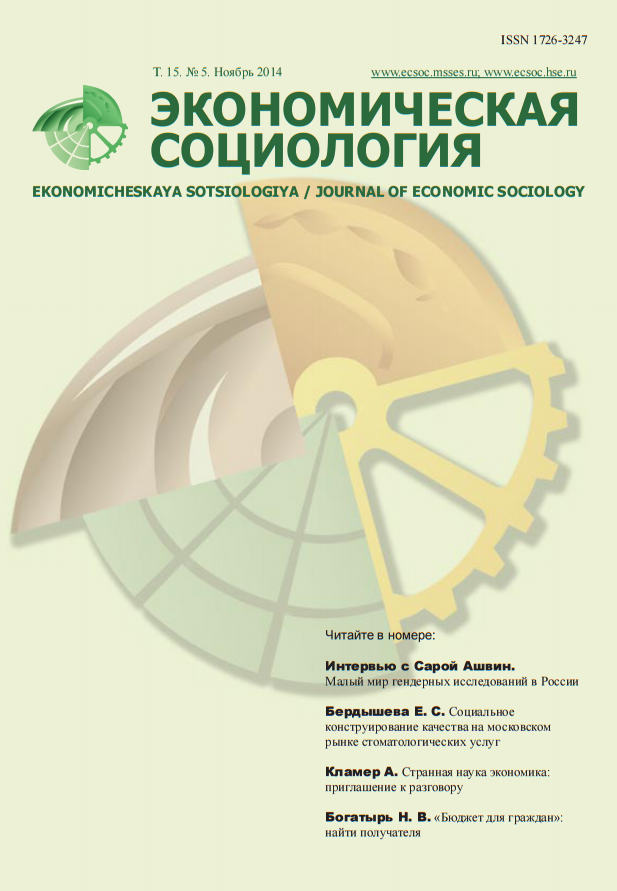Citizens’ Guide to the Budget: Find a Receiver
Abstract
The changing nature of citizenship and the development of neoliberal theories and practices are not just issues for theoretical social science debate but also questions of concern for governments and public bodies in many nations.
This article reports on the early findings of the author’s study of open government practices in the Russian Federation and analyzes the development of the “Citizens’ Guide to the Federal Budget” (the CB); a digital document produced annually by the Ministry of Finance (the MoF), in addition to executive budget proposals. It uses plain language to explain policy objectives to help the general public (“people”) make sense of the budget. There are no clear rules or “recipes” governing how to select, simplify, present and disseminate that kind of information to the “people", and so it has become the subject of fierce debate unfolding between developers.
Drawing on 1.5 years of participant observation in 2013–2014, the article explores the debate between members of the Ministry of Finance’s working group as they attempt to define target-groups of “active citizens”, prospective CB receivers, consumers and users.
It addresses three questions: “What is the working group’s vision for the CB?”; “How does the ministry define or constitute 'citizens' it thinks could be in those target-groups?” and, “How does the ministry see active citizens’ contributing, or helping to disseminate budget information to ‘passive citizens’ and raise the level of 'budget literacy'”?’
It argues that the task of “making the budget simple” is much more difficult for the MoF than just carrying out “open data”digital projects, so it seeks partner groups of citizens who might become “translators” from finance language to everyday language. But that search is far from easy, because the MoF has no direct contact with citizens at all, only with other public bodies. Consequently the ministry chose young people (senior pupils and students), who are likely to have established links with other citizens; families consisting of older and less digitally aware people in their households, and might serve as allies, translators and defenders of budget interests for such “passive citizens”. The article concludes by distilling core themes for future work.













